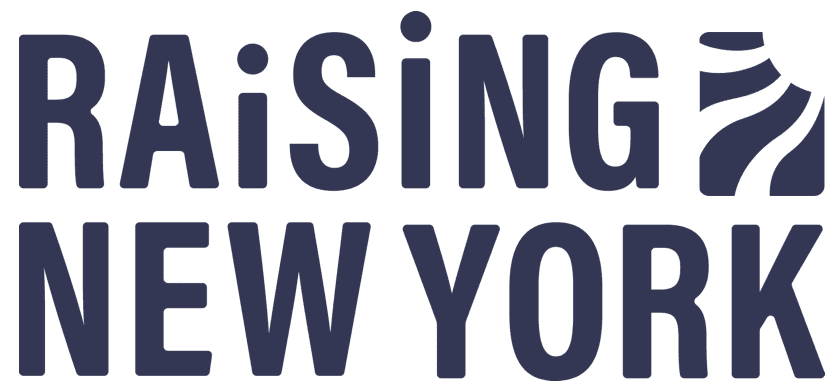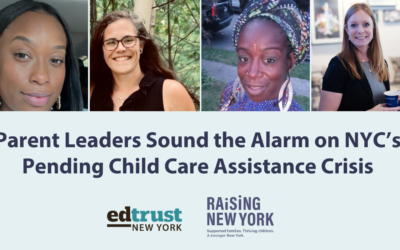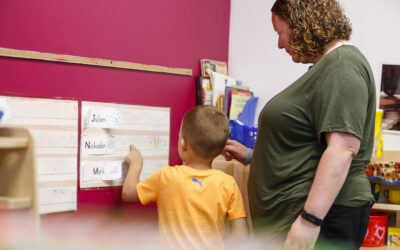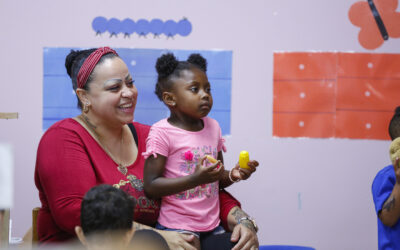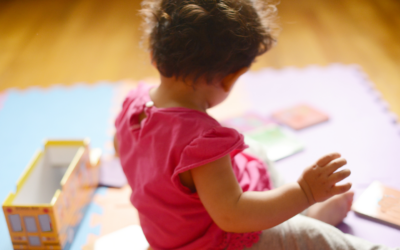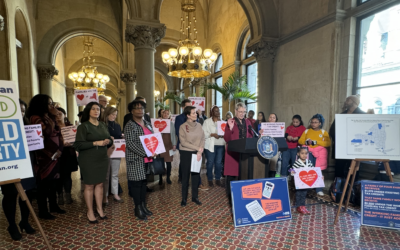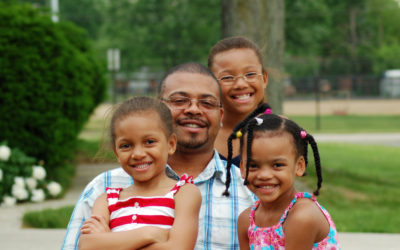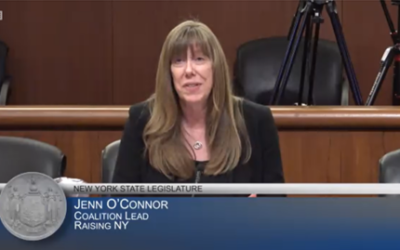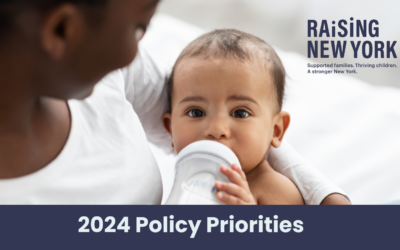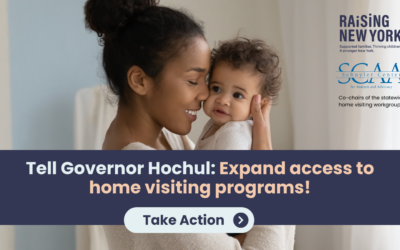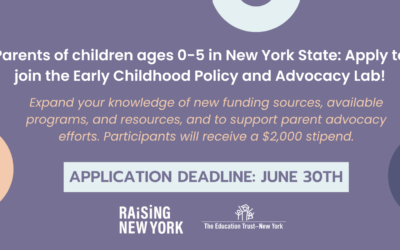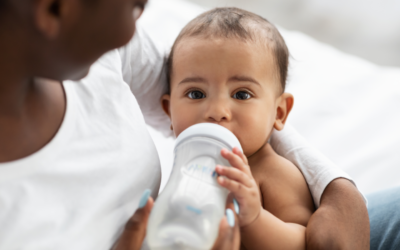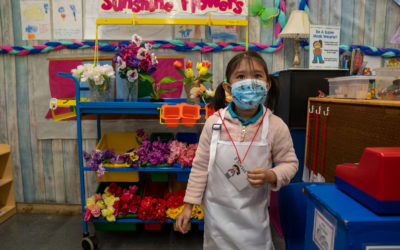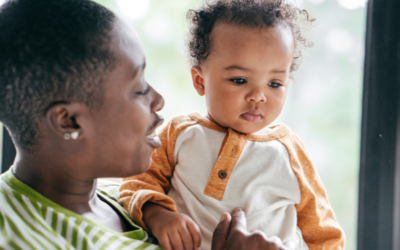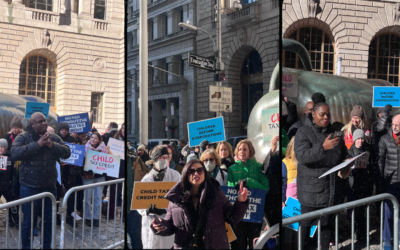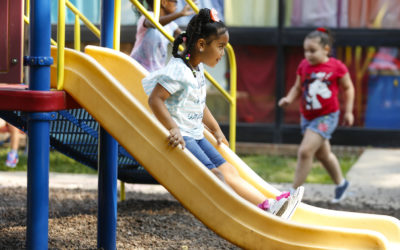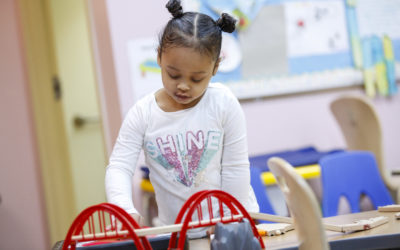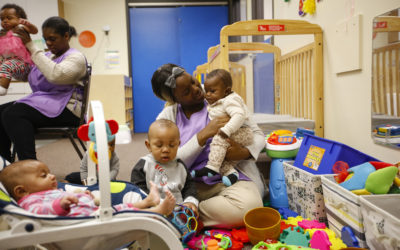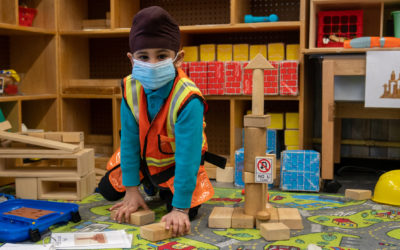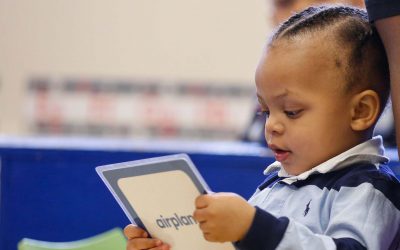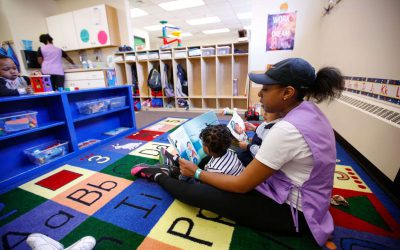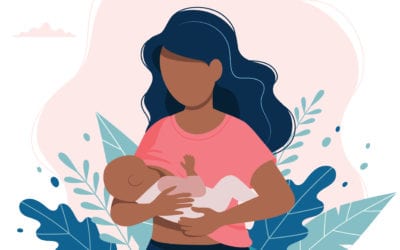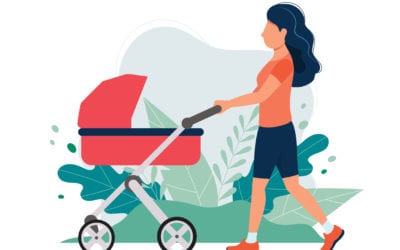News & Resources
Parent Leaders Sound the Alarm on NYC’s Pending Child Care Assistance Crisis
Child care providers and educators will scramble to fill seats and keep their doors open, while parents who rely on child care to maintain employment, education, health care, and financial stability could face devastating consequences. Although NYC will be the first to experience this shortfall, other counties across the state are already starting to face similar challenges.
EdTrust-New York Releases New Report on Systemic Barriers in Early Childhood and Poverty-Reduction Programs
The report delves into both qualitative and quantitative data to uncover the barriers faced by families, particularly those of color, immigrant families, and low-income households, as they navigate complex systems to access poverty-reduction and early childhood programs.
Child care providers share how to value early childhood educators beyond Provider Appreciation Week
Every little New Yorker should be supported by an affordable, safe, and culturally responsive universal child care system with well-equipped and supported child care providers. Yet, child care workers are still among the lowest-paid workers in New York State and many...
Testimony for the Public Hearing on Public Benefits
April 29, 2024 Good afternoon Acting Commissioner Guinn and members of the Child Poverty Reduction Council. Thank you for the opportunity to share testimony; my name is Lara Kyriakou and I’m from The Education Trust–New York, a statewide non-profit organization...
The state of child care compensation, and where we go from here
While New York State has made impressive strides in increasing parent and caregiver access and affordability, the most pressing recommendation in the Child Care Availability Task Force 2024 report to increase workforce compensation, in a sustainable way, remains unfulfilled, which is unfortunate.
Child care providers are an essential part of a foster child’s success — and they deserve a permanent wage increase.
Being a foster parent is demanding yet crucial work, made possible with the support of various providers who assist with potty training, manage meltdowns, offer developmental suggestions, and love our children as their own. They are an essential part of a young foster child’s success.
Poverty Reduction and Working Families Tax Credit Advocacy Continues
Families, advocates, direct service organizations, community leaders, and policymakers gathered in Albany with elected officials to fight for families and highlight the importance of poverty-reduction policies, like the Working Families Tax Credit (WFTC), that can provide critically needed support for food, housing, child care, transportation, and other costs.
Testimony to the Joint Budget Hearing: Taxes: February 2024
We urge New York to strengthen and expand its refundable tax credits in the FY 2025 State budget to have the greatest impact on child poverty.
Testimony to the Joint Legislative Hearing on Human Services: January 2024
Education starts early — during the first 1,000 days (or three years) of a child’s life. New York State spends $23.9B on all early childhood programs, yet the bulk of that investment goes to prekindergarten, Medicaid, and Child Health Plus (CHP). Some programs that receive funding (like CHP and SNAP), serve children outside the 0-5 age range.
Testimony on Early Intervention, Medicaid coverage, and Home Visiting: January 23, 2024
The Education Trust–New York, on behalf of Raising NY, testified to the New York State Joint Legislative Hearing on Health on January 23, 2024 The Education Trust–New York is a statewide non-profit organization dedicated to educational equity. We work to attain...
Raising NY: 2024 Policy Priorities
The Raising NY coalition highlights the following 2024 policy priorities and collectively request policymakers to address them in their one-house bills while responding to the Executive Budget proposal.
Expand access to maternal, infant, and early childhood home visiting in the 2024 Executive Budget!
Testimony on Child Care to the NYC City Council Committee on Women & Gender Equity
In order to address long-standing racial and economic inequities in the child care system, efforts to expand access and capacity must go hand in hand with expansion of a culturally-responsive, quality rating and improvement system that provides the workforce and families with the tools to identify and cultivate programs that meet specific needs and priorities of families.
Testimony: Promise NYC and Access to Child Care
We strongly urge the City to commit $20 million in FY24 to fully fund Promise NYC.
Apply to join the Early Childhood Policy and Advocacy Lab
Overview Parents are their children’s first teachers and an essential part of ensuring high-quality, equitable systems of early care and education. Today, parent voice is more important than ever. Research shows that the first 1,000 days of a child’s life—the period...
Decoupling child care subsidies from parents’ working hours
For many parents who work part time, have rotating work schedules, are homeless, or have other “non-traditional” arrangements, access to care is limited.
Testimony for the Joint Legislative Budget Hearing on Workforce Development
March 1, 2023 Submitted by Lara Kyriakou, Associate Director of Early Childhood Advocacy and Policy, Ed Trust–NY The Education Trust–New York is a statewide non-profit organization dedicated to educational equity. We work to attain educational justice through...
Testimony for the Joint Legislative Budget Hearing on Health & Medicaid
It is critical that we expand the Medicaid continuous coverage to mothers and children up to age 6. Access to high-quality maternal health and pediatric primary care is crucial to supporting the health and wellness of mothers and their young children, particularly the health of Black mothers, who are five times more likely to die of a pregnancy-related cause than White women in New York State.
Testimony: 3-K Funding Cuts and Delayed Reimbursements to Early Childhood Providers in NYC
Wages for child care and early educators remain in the bottom 3% of earners 2; without consistent and livable wages, the child care workforce shortage will continue.
Testimony: 2023 Joint Budget Hearing on Taxes
The Working Families Tax Credit, Senate Bill 277 (Gounardes), proposes combining and strengthening New York’s ESCC and EITC. For individual New Yorkers and families currently eligible for the ESCC, EITC, or both, the combined credit they would receive from the WFTC would be greater, or equal to the sum of the two credits. For the lowest income, and many immigrant New Yorkers, the credit amount would be significantly greater under the WFTC.
Testimony: Impact of the COVID-19 Pandemic on Women in the Workforce
Parents, and particularly mothers, in the workforce also face the additional obstacle of accessing child care in order to work.
What’s next in 2023 for Raising NY
As we wrap up the first three years of the Raising NY coalition, we are taking the opportunity to reflect on the progress we’ve made thus far and recalibrate our coalition priorities to ensure that we are maximizing the opportunities of our current context and...
Rally and support for the federal Child Tax Credit
As the Raising NY coalition continues to band together and advocate for an expanded federal Child Tax Credit, advocates from across the state recently hosted rallies in New York City and Rochester to call on congressional lawmakers to put children before...
It’s time to expand the Empire State Child Credit, New York!
As it stands currently, the Empire State Child Tax Credit policy excludes young children under 4 and its phase-in structure reduces the credit amount for children in families experiencing deep poverty – meaning families earning below $9.667 are ineligible to receive the full ESCC amount.
Poll: Parents across all racial groups have encountered challenges accessing high-quality child care
The poll, conducted by Global Strategy Group in partnership with the Raising NY coalition, also found that while parents overall are satisfied with their child care program, their experiences with some areas of the system can vary widely across racial lines.
Despite significant child poverty, New York lags behind other states in providing tax credit relief to families of young children
New York was among the first states in the nation to offer a child tax credit and once led the country in its generous, fully refundable family tax credits, primarily the Empire State Child Credit. But New York has quickly fallen behind as other states have instituted more generous credits in the wake of the COVID-19 pandemic.
Analysis sheds light on how New York’s child care providers utilized federal and state pandemic relief dollars
Over the past two years, the New York State Office of Children and Family (OCFS) Services distributed more than $1 billion from these funding streams combined. The infusion of these relief dollars was critical to the survival of many child care providers, many of whom were already struggling before the pandemic exacerbated pre-existing inequities in the child care system.
New bills announced aim to improve child care in New York City
Several new bills, introduced by City Councilmember Julie Menin on June 2nd, aim to boost child care in the city — including improving the way families receive information about what’s available to them. Learn more about what each bill would enact. Int 0477-2022 A...
How a new initiative to address child care deserts in NY could help families and businesses
As New York State focuses on pandemic recovery, it’s critical the state addresses the needs of businesses and parents to meet the increasingly demanding needs of our economy.
What should the ‘universal’ in universal child care mean?
While state and federal leadership continue to discuss and debate the need for universal child care, it’s important to make two things clear: One, there is a need. Two, we need to be clear about what universal child care means.
As we build back better, we must prioritize affordability, accessibility, and quality in New York’s child care system
Universal child care cannot be built without three key foundational building blocks — Affordability. Accessibility. Quality.
New report highlights the challenges South Bronx parents face accessing affordable, high-quality child care
Parent experiences during the pandemic underscore the critical need for city and state leaders to invest in New York’s child care system NEW YORK – A new report released today highlights the challenges South Bronx parents from diverse backgrounds face ensuring their...
Parents, providers, and stakeholders share advantages and disadvantages of early intervention telehealth services and propose solutions
On Tuesday, October 19, the Raising NY coalition hosted a virtual roundtable where parents, providers, and other key stakeholders discussed their experiences with early intervention telehealth services and where New York State can go from here.
Raising NY Leaders Spotlight: United Way of Buffalo & Erie County
Learn more about the initiatives that United Way of Buffalo & Erie County lead to get pregnant women and babies off to a healthy start.
Raising NY Leaders Spotlight: The New York Immigration Coalition
Read more about how the New York Immigration Coalition advocates for economic justice to affordable child care, and access to state programs for immigrant families across New York.
How better screening and more information can help new mothers
About one in seven mothers in New York State reported postpartum depressive and anxiety symptoms after giving birth. Yet, in a group of about eight mothers who work with the Postpartum Resource Center of New York, almost none of them had heard of the diagnosis,...
Faced with limited resources, new mothers get by finding their own support
After giving birth, Geri O'Keeffe fell into a deep postpartum depression. Vanessa Barisano had obsessive thoughts about protecting her baby that ended up isolating her from loved ones. Neither of the women had access to the resources or supports they needed to...
Racist disparities in health care
Chanel Jones almost died. Twice. Chanel was pregnant as a college junior living and studying in Staten Island. Her family moved away when she graduated high school, and she only had a few friends from college to support her. They’d made plans to have a natural birth,...
Poll: Nearly 9 in 10 parents of infants and toddlers worry their child’s social, emotional, and cognitive development will suffer as a result of the ongoing pandemic
The poll, released by the Raising NY coalition of parent, early childhood, education, civil rights, business, and health organizations and conducted by Global Strategy Group, also revealed that many of parents’ concerns have been heightened since the start of the pandemic, with the percentage of parents worried about their child’s development increasing an alarming 17 percentage points since an April poll and the percentage of parents worried about the impact of substance abuse and domestic violence on their families increasing seven percentage points.
Poll: Business leaders face economic hardship due to lack of employee access to infant and toddler child care, call for more public investment
The survey results reinforce that New York State’s child care crisis has been amplified for both families and employers during the pandemic. Business leaders believe the lack of access to quality infant and toddler child care will make problems worse for their business if coronavirus cases rise this fall and winter, or if the economy continues to suffer.
Child care for infants and toddlers at severe risk as pandemic threatens providers across New York State
New York State has more than $134 million currently available federal CARES Act funding that the state should strategically invest to rebuild, sustain, and strengthen the state’s child care system for infants, toddlers, and other young children. In April, the state announced that it would make available $30 million in CARES Act funding for child care scholarships for essential workers and for crucial supplies for child care providers.
Raising NY findings on child care capacity highlight urgent need for New York to invest in high-quality infant and toddler care
NEW YORK – The estimated number of infant and toddler child care slots decreased in nearly every region of the state between 2009 and 2018, and many providers report that they are running on a deficit, according to new resources released today by Raising NY, a statewide coalition dedicated to increasing the number of children on track for school readiness.
Poll: Voters say strengthening early childhood is among top issues for NY to address, want state to do more to support infants and toddlers
NEW YORK – A new poll reveals that likely voters rank strengthening education and child care for all New Yorkers as among the top priorities for the state to address, with 85% saying they support the state investing more public funds to expand access to high-quality,...
